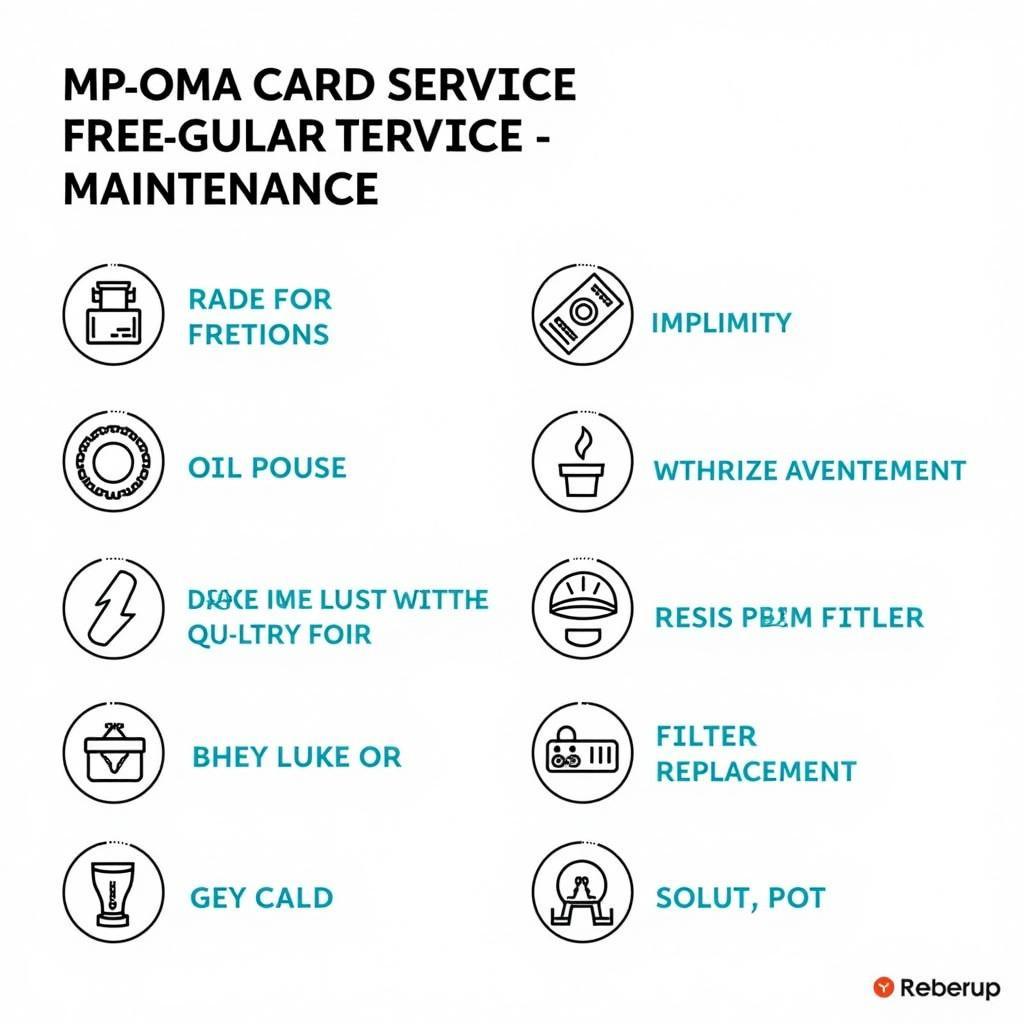Have Your Car Serviced At Least: How Often Does Your Vehicle Need a Check-Up?
Maintaining your car can feel like a guessing game. Oil changes, tire rotations, brake inspections – it seems like there’s always something. But how often do you really need to have your car serviced? And what happens if you wait too long?
The truth is, regular car maintenance is crucial for both your wallet and your safety. Ignoring minor issues can lead to costly repairs down the road, not to mention dangerous driving conditions. While a general rule of thumb is to Have Your Car Serviced At Least once a year or every 12,000 miles, the specific needs of your vehicle can vary depending on its age, make, model, and driving conditions.
Why Regular Car Service is Non-Negotiable
Think of your car like your body – it needs regular checkups to keep running smoothly.
- Preventing Costly Repairs: Catching issues early on saves you money in the long run. A small oil leak can turn into a major engine problem if ignored, and worn brake pads can damage your rotors, leading to expensive replacements.
- Ensuring Safety: Regular maintenance keeps you and your passengers safe on the road. Worn tires, faulty brakes, and malfunctioning lights can significantly increase the risk of accidents.
- Improving Fuel Efficiency: A well-maintained car runs more efficiently, saving you money on gas. Regular tune-ups, air filter changes, and proper tire pressure can all contribute to better fuel economy.
- Maintaining Value: A car with a well-documented service history holds its value better. When it comes time to sell or trade in your car, you’ll be in a better position to negotiate a higher price.
 Regular Car Service Checklist
Regular Car Service Checklist
Deciphering the Maintenance Schedule: What to Look For
Every car comes with a manufacturer’s recommended maintenance schedule. This guide outlines specific services based on mileage intervals or time elapsed, such as:
- Oil and Filter Changes: Essential for lubricating the engine and preventing wear and tear.
- Tire Rotations: Ensure even tire wear, extending their lifespan and improving handling.
- Brake Inspections: Check the condition of your brake pads, rotors, and calipers to maintain optimal stopping power.
- Fluid Top-Offs: Replenishing essential fluids like coolant, brake fluid, and transmission fluid keeps your car running smoothly.
- Filter Replacements: Changing air filters, fuel filters, and cabin air filters improves air quality and engine performance.
 Car Service Warning Lights Dashboard
Car Service Warning Lights Dashboard
Beyond the Basics: Factors Affecting Service Frequency
While the manufacturer’s schedule is a great starting point, other factors can influence how often your car needs servicing:
- Driving Conditions: Frequent stop-and-go traffic, extreme temperatures, and rough terrain can put extra strain on your car, requiring more frequent service.
- Driving Style: Aggressive driving habits like hard braking and acceleration can also contribute to faster wear and tear.
- Vehicle Age: Older cars may require more frequent service as components naturally wear down over time.
Listen to Your Car: Recognizing Warning Signs
Your car often gives you clues when it’s time for service. Keep an ear out for unusual noises like:
- Squealing or grinding brakes
- Clicking or knocking sounds from the engine
- Rumbling or humming from the tires
Pay attention to changes in your car’s performance, such as:
- Pulling to one side while driving
- Vibrations in the steering wheel or brake pedal
- Decreased fuel efficiency
Don’t Delay: The Consequences of Skipping Service
Ignoring your car’s service needs can lead to:
- Decreased safety: Worn brakes, bald tires, and other neglected issues can significantly increase the risk of accidents.
- Costlier Repairs: Small problems can escalate into major (and expensive) repairs if left unaddressed.
- Voided Warranty: Failing to follow the recommended maintenance schedule can void your car’s warranty.
- Decreased Resale Value: A car with a spotty service history will be less appealing to potential buyers.
Car Service: An Investment, Not an Expense
Regular car service is an investment in your vehicle’s longevity, your safety, and your wallet. By following the recommended maintenance schedule, addressing warning signs promptly, and choosing a trusted mechanic, you can enjoy a reliable, safe, and efficient ride for years to come.
Remember, when you “have your car serviced at least” according to the recommended schedule, you’re not just ticking boxes – you’re investing in peace of mind.

